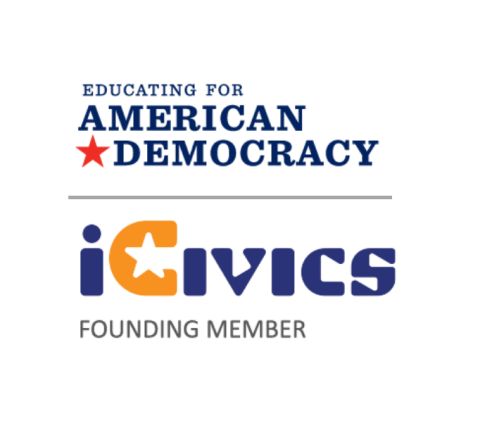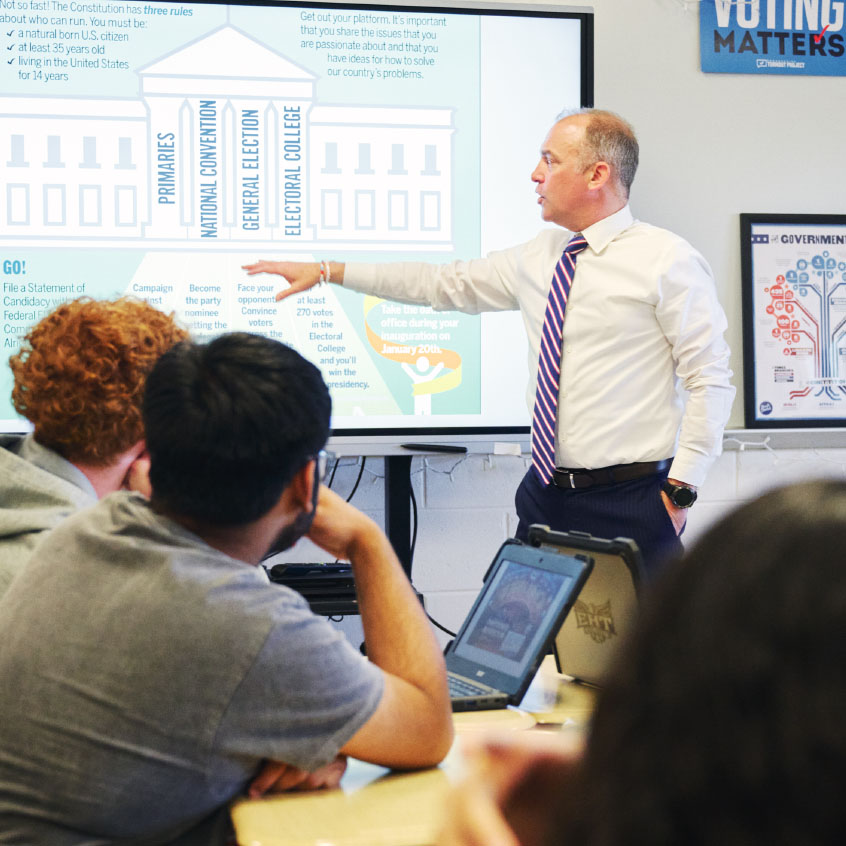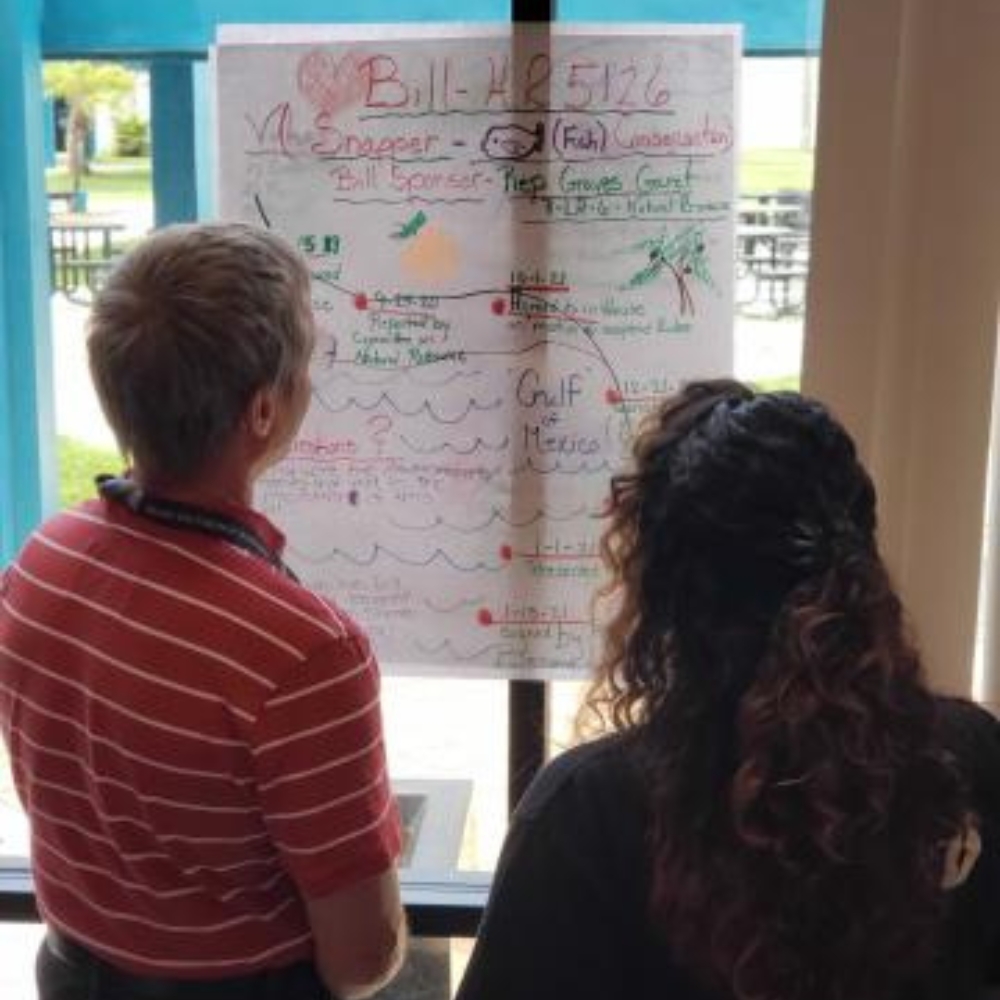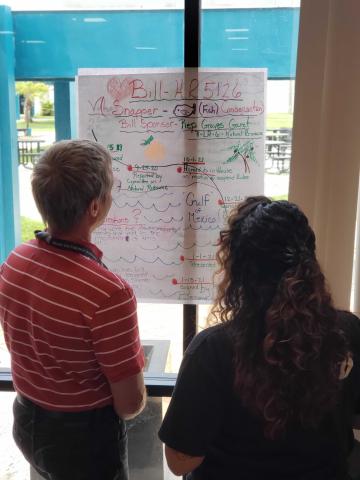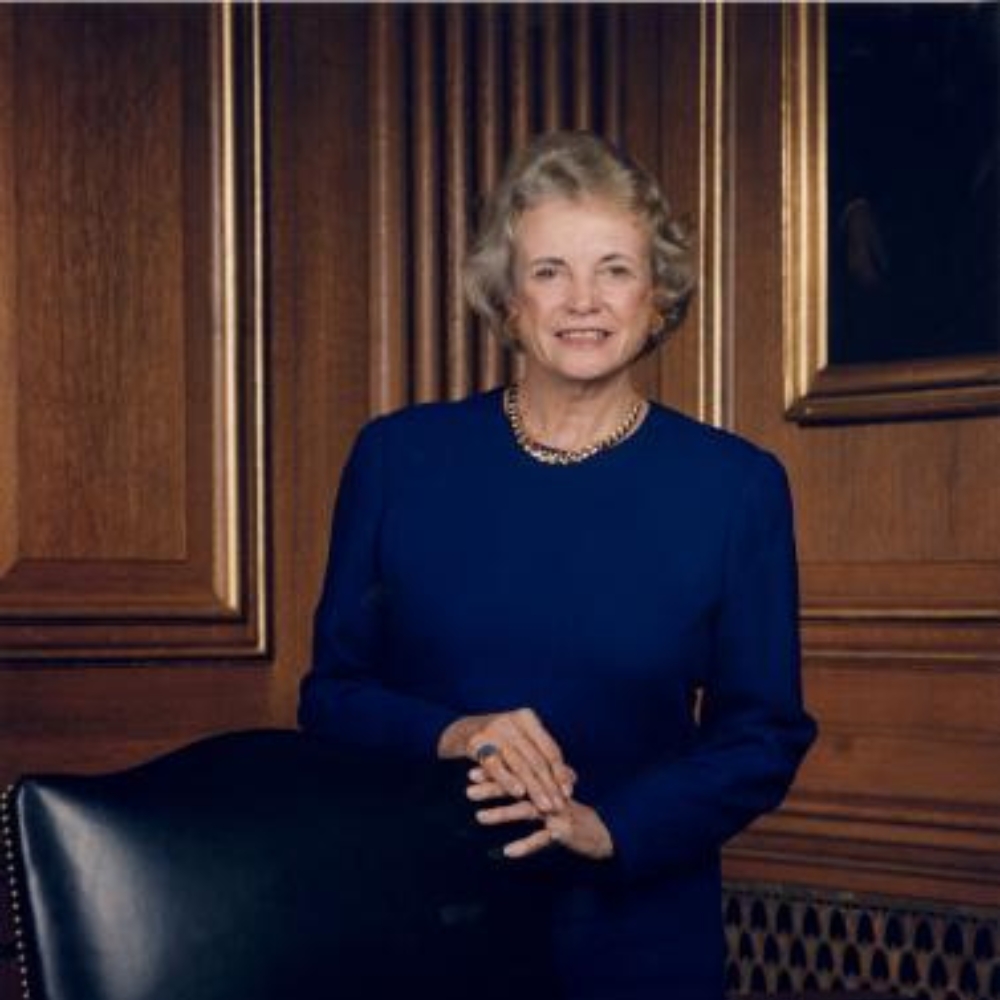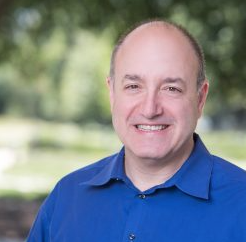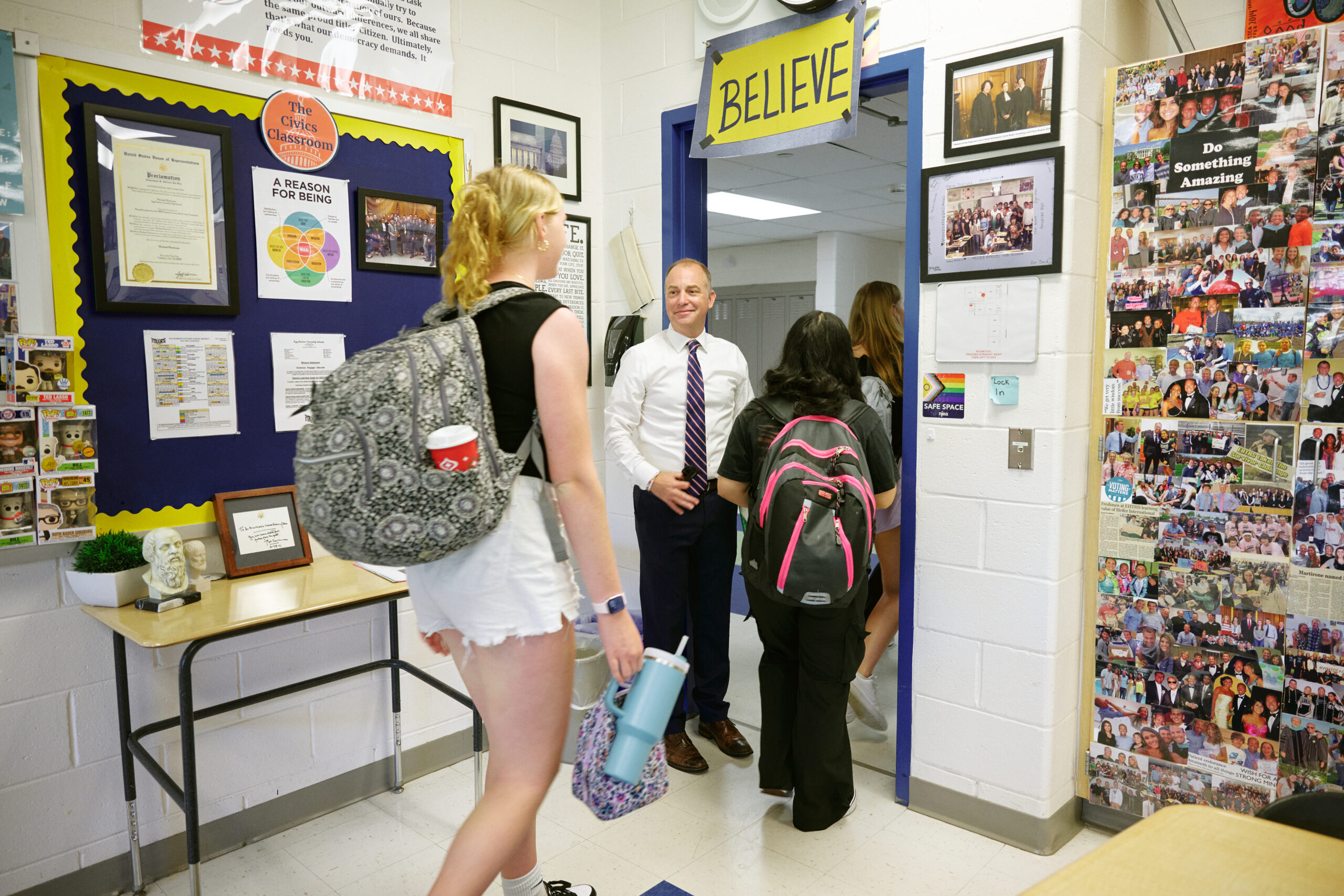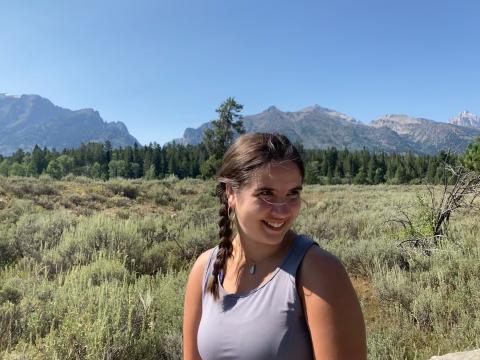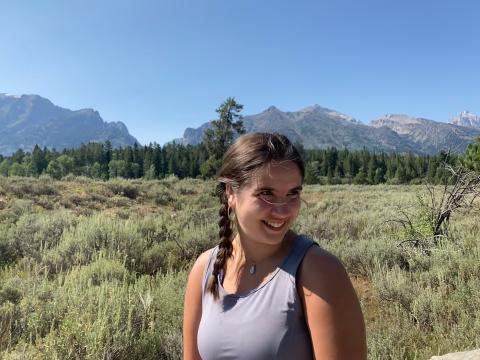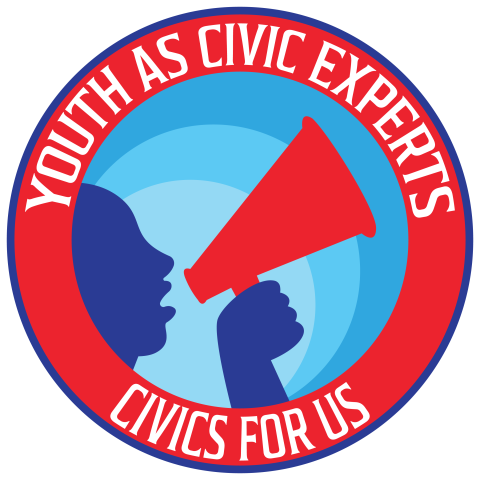
Now in its fourth year, the fellowship works with students from across the country to build civic leadership skills and explore how civic education can become more relevant to all youth in the United States
iCivics has selected 30 talented high school students from across the country to take part in the iCivics Equity in Civics Youth Fellowship (ECYF). The students were selected after a competitive process that saw nearly 650 applicants—more applicants than it has in the previous three years combined—from 43 states, Washington, D.C. and Puerto Rico.
The yearlong fellowship helps students develop leadership and communications skills in collaboration with peers and experts in the field of civic education. Throughout the year, students research and explore how civic education can become more equitable for students across the United States, utilizing their own lived experiences to become ambassadors and shed light on how civic education can include student voices from every background.
“It’s important for the field of civic education to have a student perspective on what we as a field are trying to do to improve civics and create a high-quality education and experience for all students,“ said iCivics Youth Engagement Coordinator Michael Reyes. “Based on the number of applicants we had for this year’s fellowship, and what each of them wrote in their applications, there is a huge appetite for students to be involved. I’m excited for this year’s fellows to come together and learn from each other and hear the perspectives of students from different backgrounds who they may never have met otherwise. That’s a key part of this.”
The fellowship kicked off in late August, moving into full-gear with an in-person symposium in Washington D.C. in early fall. It then continues through the 2022–2023 school year as fellows engage virtually in group discussions with their peers, workshops and lectures with experts in the field, and projects designed to strengthen listening and collaborative skills. All of the fellows’ work will be centered around ensuring that civic education is available and relevant to all students in the United States.
Over the past four years, students from across the country representing rural, urban and suburban districts have taken part in the fellowship. They have become an integral part of informing the broader civic education movement, sharing their experiences and thoughts at convenings for the Educating for American Democracy initiative, the Ronald Reagan Institute, and the Commonwealth Club. They have been featured in media such as The Wall Street Journal, Chicago Tribune, and WBUR in Boston.
“We are incredibly excited to welcome this year’s group of ECYF fellows,” iCivics Executive Director Louise Dubè said. “They are a fantastically talented and diverse group of students, whose voices we value more than our own words can capture, and hope to help empower them as they take the monumental task of improving civic learning into their own hands. We look forward to learning from them.”
iCivics is proud to announce this year’s Equity in Civics Youth Fellows:
- Camila Alfaro – Egg Harbor Township High School, New Jersey
- Anaum Allimulla –Newark Charter School, Delaware
- Denzel Augustin – Dr. Michael M. Krop Senior High School, Florida
- Grace Clemente – Cambridge Rindge and Latin, Massachusetts
- Samantha Corpuz-Giron – Salesian High School, California
- David Culver – Ozark Jr High School, Arkansas
- Amanda Donley –Fishers High School, Indiana
- Raymond Fraser – St. Andrews Episcopal School, Mississippi
- Anika Gamburg – Canyon Crest Academy, California
- Sophia Gish – Heritage Hall High School, Oklahoma
- Aine Griffin – Spark Academy of Advanced Technology, New Hampshire
- Athena Holloway – Classical High School, Rhode Island
- Milton Hernandez – Gramajo Aiken High School, Ohio
- Mark Hu – Hamden High School, Connecticut
- Jatayvia James – King College Prep, Illinois
- Rose Kelly – Clinton High school, Iowa
- Jeramie Kim – Crescent Valley High School, Oregon
- Kate Larsen – Weber High School, Utah
- Shivi Manchanda – Spring-Ford Senior High School, Pennsylvania
- Angeles Mejia – College Academy @ BC, Florida
- Jacob Montney – Alma High School, Michigan
- William Olmstead – Washington Community High School, Illinois
- Saturnino Pajkos – Tanque Verde High School, Arizona
- Autumn Parsons – Walter Wellborn High School, Alabama
- Mia Quirino – Lubbock High School, Texas
- Luis Garcia Rivera – East High School, Missouri
- Kriti Tatia – Johns Creek High School, Georgia
- Ilelta Tezera – C.D Hylton High School, Virginia
- Anjali Walsh – Lakeside School, Washington
- Julia Wolfe – Bosque School, New Mexico
For more information about the iCivics Equity in Civics Youth Fellowship, and how to participate, visit civicsforus.org.


